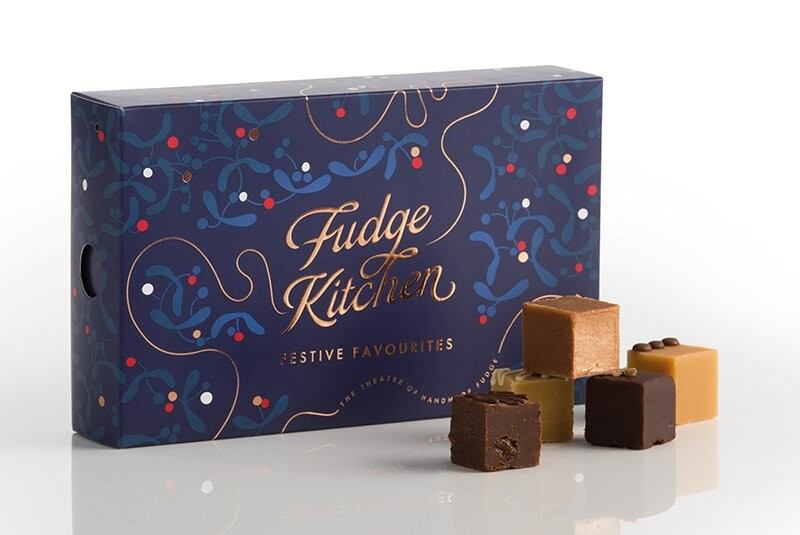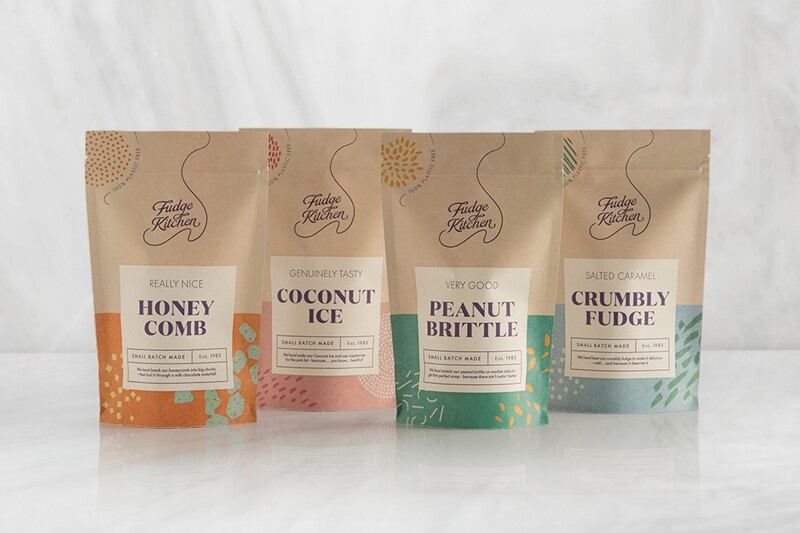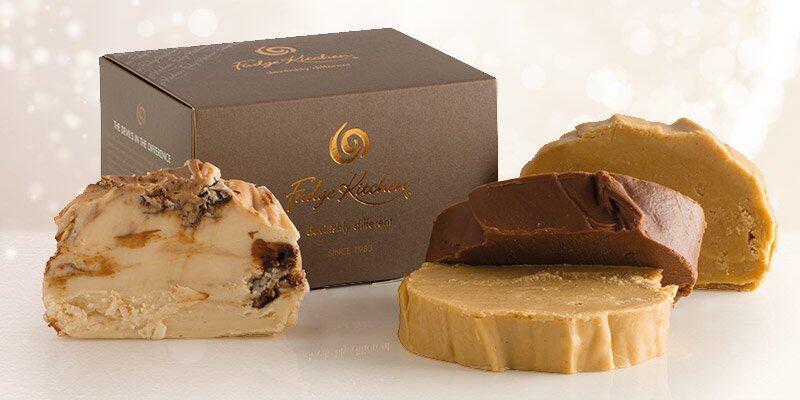The confectionery producers has been making fudge for almost 40 years, and what started out as a handful of fudge shops has developed into a thriving online and wholesale business, producing confectionery for some of the UK’s most prestigious hotels and department stores.
Managing Director, Sian Holt, said: “The rebrand initially came about as we wanted to align the personality of our six high street shops with the premium gifting positioning of our wholesale and ecommerce sides. As part of this review, we felt it was the perfect time to explore more sustainable packaging options, introduce more locally sourced ingredients and find ways in which we can give back to the planet.”
The packaging update saw the company moving to UK printed packaging, dramatically reducing its carbon footprint. It also switched to plant-based inks and water-based glues, and all its packaging is now FSC certified and now fully recyclable. As part of the rebrand, the Kent-based confectioner also switched to a new and more ethical chocolate supplier, Luker Chocolate – a Colombian, family-owned chocolate manufacturer. Alongside this, it is also beginning to phase out internationally grown cane sugar in favour of beet sugar grown in Norfolk.
This Christmas, Fudge Kitchen said it wanted to create a product that replaced something wasteful and unsustainable and created its Luxury Christmas Crackers. Each cracker contains three generous squares of butter fudge in their most popular festive flavours – Sea Salted Caramel, Speculoos and Chocolate & Orange.
Christmas crackers
Alongside its Christmas Crackers, Fudge Kitchen has an extensive range of other gifting products, including its compostable confectionery pouches containing handmade Chocolate Coated Honeycomb, Raspberry Coconut Ice, Rock Salted Peanut Brittle, and Sea Salted Caramel Crumbly Fudge.
Head of Sales, Rupert Allinson, said: “There’s a responsibility for all businesses to play their part in tackling the climate emergency. We don’t want to just do ‘enough’ to keep in line with government rules and legislation. Instead, we want to pave our own way, going above and beyond to minimise the impact we have.”



